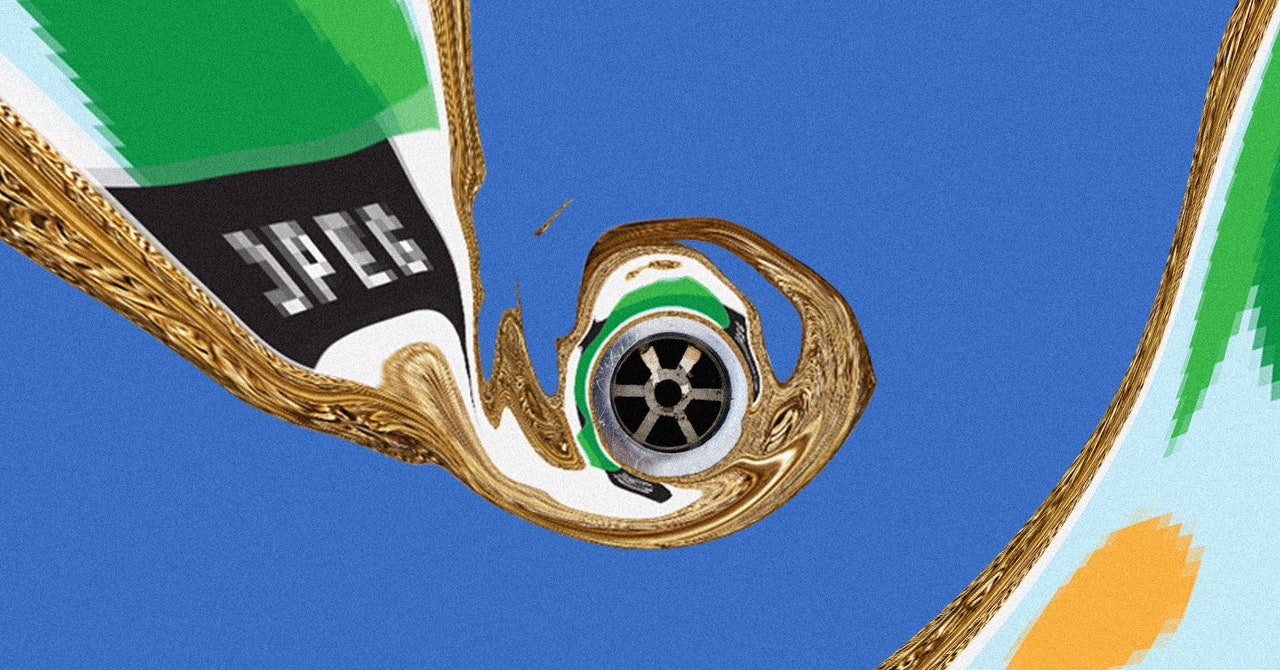
Meta and Twitter’s NFT Landgrab Could Backfire | WIRED
Whether you view Web3—the decentralized vision of the future of the internet—as a utopian idea or a Ponzi scheme, one thing is for certain: It’s meant to look different from what’s gone before.
This is what makes the latest moves by Meta, parent company of Facebook and Instagram, and Twitter so strange. On January 20, Twitter rolled out the ability for users of its paid premium service, Twitter Blue, to change their profile picture to a non-fungible token (NFT) they own—a key part of Web3.
On the same day, The Financial Times reported that Meta was working on integrating NFT ownership into their profiles on Facebook and Instagram. The company is also developing a tool to allow users to mint NFTs of their own on Meta platforms, according to reports. It follows public statements in December 2021 from Instagram chief Adam Mosseri that his app was exploring the promise of NFTs.
The co-opting of NFTs by big tech platforms is, in some way, unsurprising. Web3 and NFTs have become hot commodities—the biggest player in the space, NFT marketplace OpenSea, raised $300 million in funding earlier this month, giving it a valuation of $13.3 billion. It makes sense that the biggest names on Web 2.0 would want to capitalize on the trend and stay relevant.
Unfortunately, Meta and Twitter’s plan to sanitize NFTs goes directly against the principle by which they were created. Both companies favor key practices that Web3 supporters want to do away with—centralized control of key digital services by a handful of multibillion-dollar corporations. Both make inordinate amounts of money from the things that Web3’s biggest boosters want to remove.
And for the Silicon Valley titans, the backing of a market full of scammers and fraudsters is an odd move.
“At the moment it’s the wild west—there’s nobody to police this,” says Alan Woodward, professor of cybersecurity at the University of Surrey. “The problem is these social media companies become responsible. They become policemen.” That’s particularly worrisome given the sheer volume of copyright and ownership disputes that have blighted NFT artwork in recent months. “If there’s a dispute over those NFTs, who do those people go to?” asks Woodward. “It’ll be Facebook or Twitter. Why would you want to take that liability?”
Already buffeted by regulators who want to curb their power, Twitter and Meta are among the internet companies caught in the middle of a polarized political debate over whether they are responsible for the propagation of violent and extreme content online, so giving any ammunition to their critics seems foolhardy. And yet they’re about to share the imprimatur of their implicit support to a technology that is famous for a rug pull that stole millions of dollars from victims, racism (lots of racism), and theft, as well as questionable ties to shady Russian crime gangs who are happy to fictionalize their nationality and gender to take money from rubes. Both Twitter and Facebook did not respond to a request for comment for this story.
“Despite the positivity around NFT use cases, there’s a lot of distrust in the community—perhaps due to the anonymity of key artists and influencers, and almost certainly due to the scammers that circle like vultures and frequent rug pulls,” says PJ Cooper, founder of Pandimensional Trading Co., which is launching its own NFT collection later this year. Despite those reservations, Cooper is largely supportive of Twitter’s entry into the NFT space, and says he will display an NFT as his profile picture when functionality rolls out to the UK.
Cooper does, however, have worries about the fact that people can still right-click and save NFT profile pictures and mint their own version of them as NFTs.
Theft is a perennial problem for the NFT world, and one that seems unlikely to be easily fixed, but McCorry thinks that’s a non-issue for Meta and Twitter. “What matters really is custody and the ability to sell it on a secondary market,” he says. For now, it is clear that neither company would own or have custody of an NFT. “Custody is a liability for them,” he said.
For those deep in the NFT space, the adoption of official standards by Twitter in particular is welcomed. Plenty of Twitter users have NFT art as their profile picture, but find it difficult to prove ownership, particularly when faced by trolls who like nothing more than to right-click and steal their NFTs to show them the fallibility of their investments. “Right now, anyone can just put up a CryptoPunk picture and pretend to have one,” says McCorry. Twitter’s plans to prove ownership officially are “a nice way to demonstrate digital property rights.”
This content was originally published here.


